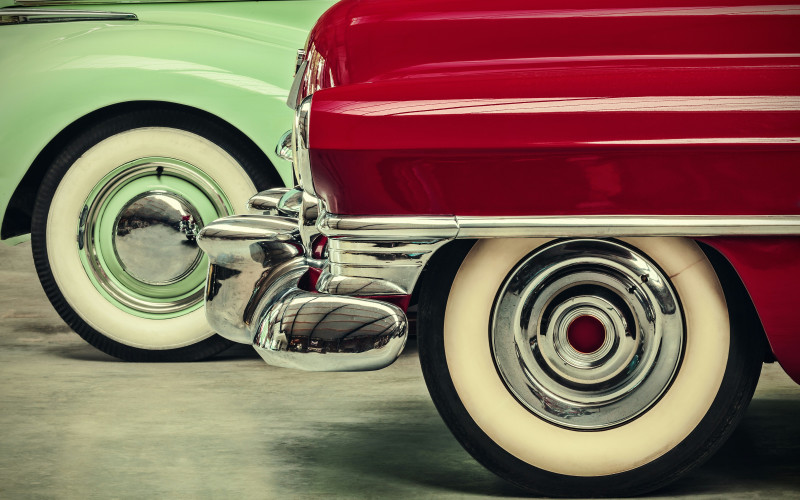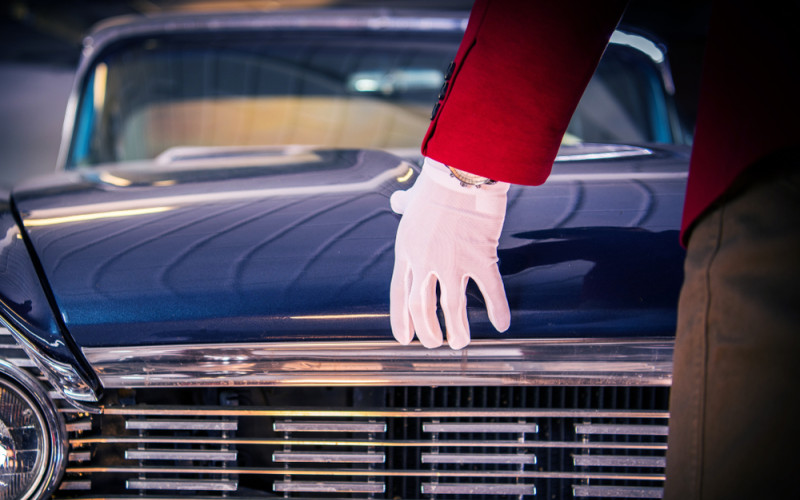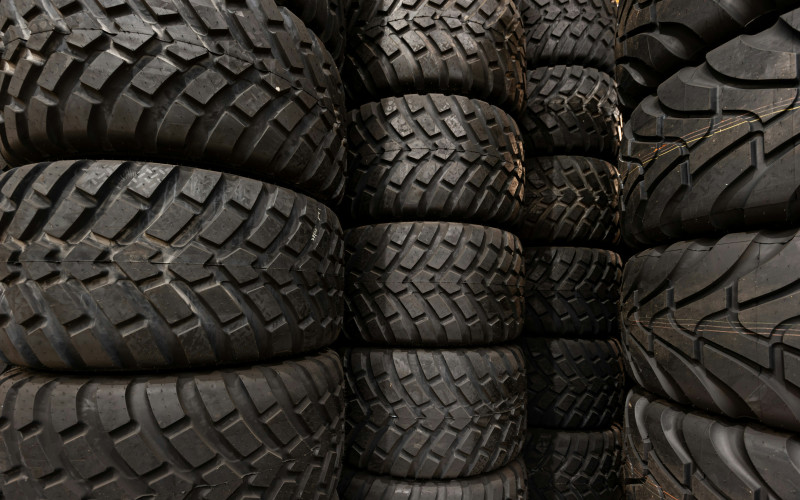How To Buy A Car At Auction
Buying any car at auction can be fun, but classic vehicle auctions are unique. They combine the thrill of the hunt with a rewarding hobby. For the first-time buyer though, the prospect of navigating these alone can feel daunting. Fear not! In this guide, we’ll explain how to get the most out of a classic vehicle auction, from preparation to bidding and beyond.
Pre-Auction Preparation: Know What You Want
Before you dive into the world of classic vehicle auctions, it's crucial to do your homework. The following four steps are a good way to get started.
- Be clear about your goal: Decide what type of car you're looking for. Recent research from Hagerty Insider might help. They found that age affects the makes, models, and era of cars that buyers choose. Ferrari is favourite for Millennials, but Boomers and Gen-X prefer Porsches.
- Research Auctions: Identify reputable auction houses that specialize in the vehicle you want. Read online reviews or check their Trust Pilot record. Pay specific attention to any comments about hidden fees.
- Check the calendar: Think about where and when you want to go to auction. It’s important for the event to be at a convenient time and place and be open to the public (some auctions are for professional dealers only). Then look at the company’s online brochure or inventory to see which lots are up for auction on those dates. Make a note of the cars you're interested in and gather as much information as possible about each one.
- Do the math: It might be the car of your dreams but it’s important to be realistic about your budget. You need to consider repair and restoration costs as well as the fees of the auction house.
Auction Previews: Your Chance to Get a Close Up
Auction previews let you get a first-hand view of the cars you're interested in. These are often held the day before the auction. At an auction preview you should:
- Inspect the Cars: Pay attention to the condition of the paint, body, and interior. Look for signs of wear, rust, and obvious repairs or patch ups. Most auction houses allow you to get in the car. Some are happy about you starting the engine too.
- Listen to the Engine: If the auction staff allow you to start the engine, listen for any unusual noises. Check for signs of smoke or leaks.
- Examine the Documentation: Check the vehicle's service history, including maintenance and restoration records. A comprehensive history is something to consider when assessing the car's value.
- Ask Questions: Talk to the auction staff or the sellers themselves, if present. Ask about the car's history, any known issues, and their reasons for selling.
The Financial Aspect
As the auction date approaches, drill down into the financial details. Make sure to:
- have a clear idea about what you’re willing to pay for the cars you’re interested in. Do some research into the market value of the vehicles. Decide on your maximum bid and stick to it. Be aware that the excitement of bidding can lead you to overspend.
- account for additional costs. Find out what fees are payable to the auction house. These may include a buyer's premium (a percentage of the final bid), registration fees, and taxes.
- research payment options. Each auction house will have its own rules on acceptable payment methods. Ensure you have the necessary funds to complete the purchase. Bear in mind that many auction companies refuse to accept payment by credit card.
- factor in transportation costs. You'll normally need to get your new car transported to your home. You may need to hire a trailer or pay a professional. Whichever way, remember to budget for this.
Understanding the Auction Process: Bid for Success
Auctions are fun, dynamic events with their own rules and rhythms. Here's how to get the most out of them:
- Arrive Early: It’s important to get a handle on how the auction works so get there in good time to find your spot.
- Listen and Learn: Pay attention to the auctioneer's announcements and ways of bidding. Observe how experienced bidders operate.
- Stay Calm and Confident: Keep your emotions in check when the lot you’re interested in comes up. Keep your maximum bid in mind and resist any impulsive desire to change it.
- Bid Assertively: When you're ready to bid, raise your bidder's paddle or make a clear gesture. Be confident in your bids, and don't hesitate to signal your interest.
Winning and What Comes Next: Bringing Your Dream Car Home
If you win, congratulations! Here's what you need to do now:
- Confirm Your Bid: Ensure the auctioneer acknowledges your winning bid. Then get the necessary documentation.
- Settle Payment: Be ready to pay immediately. You may need to provide a deposit or settle the full amount on the spot.
- Review Documentation: Carefully examine all paperwork, including the title and bill of sale. Ensure everything is accurate and complete.
- Arrange Transportation: Decide how you'll transport your new acquisition. Tell the auction staff about your plans.
Post-Purchase Care: Enjoying Your New Ride
Now that you're the owner of a classic car, it's time to enjoy it! You might want to display your pride and joy at a show or attend a classic car rally. Whatever you do, take time to check it over before taking it out on the road. Classic cars need a lot of care and maintenance.
FREQUENTLY ASKED QUESTIONS
Are classic vehicle auctions the best option?
Sure, you can buy a classic car from a number of places: online marketplaces, dealerships, or private sellers. But if you want to have an enjoyable experience, and the possibility of getting a bargain, auctions are hard to beat.
How can I avoid overbidding at an auction?
To avoid overbidding, set a realistic budget in advance and stick to it. Keep your emotions in check. Bid confidently but resist the temptation to exceed your predetermined limit. It's also helpful to do thorough research on the car's value beforehand.
What if I win an auction but change my mind afterwards?
Winning a bid at an auction is legally binding, so be clear about whether you want the vehicle before bidding. If you get buyer’s remorse and decide to change your mind, there may be penalties. For example, you might lose your deposit. Always read and understand the auction house's terms and conditions before attending.
Are there financing options available for auction purchases?
Some auction houses offer financing options, but they vary widely. Check in advance to see if financing is available and what terms and interest rates apply.
Can I inspect the car before bidding?
Yes, most auctions offer preview days where you can inspect the vehicles up for auction. Take advantage of this opportunity to examine the car and its documentation carefully. Ask if you can start the engine. This inspection can help you make an informed bidding decision.
What happens if I encounter issues after buying the car?
Review the auction house's policy on this before buying. If problems arise, contact them promptly. In some cases, there may be recourse.
Are there any specific insurance considerations for auction purchases?
Yes, you should update your insurance immediately after purchasing. Ensure you have proper coverage, including liability, comprehensive, and collision insurance. Work with your insurance provider to adequately protect your new investment.
What if I can’t physically attend the auction?
You can take part in many classic vehicle auctions online. Some also offer absentee bidding. Online bidding means that you can take part and follow the auction in real time from the comfort of your home. If this is not an option, ask if the company has an absentee bidding policy. This allows buyers to nominate the company as their proxy. They will then bid on your behalf. Be aware, though, that the company will usually require a pre-paid deposit for this.
How do I find classic vehicle auctions near me?
To find reputable classic car auctions, you can search online, read reviews, or ask fellow enthusiasts like us for recommendations. Ensure the auction house specializes in the type of vehicles you're interested in and has a track record of fair dealings.
What should I do if I'm unsure about a specific car's value?
That’s easy: consult the experts. We’ll be happy to advise you. Online forums dedicated to classic cars and collectors can also help. It’s also worth going to a few auctions as an observer. All of these can help you improve your understanding of market values.
Buying a classic car at auction is a fun and rewarding experience. If you're a vintage vehicle enthusiast, check out the auctions in your area and if you have any doubts, get in touch with us.
RELATED POSTS

Nothing beats a freshly painted car that shines in the sun like a mirror. Getting a flawless, glass-like shine isn’t only about a new coat of paint. Many car owners feel let down when their newly painted car doesn’t have a deep, shiny gloss. Follow the proper steps; it will look like it came from the showroom.

Your car deserves to look its best, especially after a fresh coat of paint. Is there a trick to creating a brilliant shine that demands attention? It's not just about looks. A car's shiny coat is its best defense against depreciation.

When reviving a classic car, enthusiasts debate whether to restore or renovate it. Both processes aim to improve a car's looks and performance, but they take very different paths to achieve these goals.

When it’s time to replace your car tires, you’re faced with one big question: where’s the best place to buy them? Finding the right tires at a reasonable price can be challenging. This is true whether you're restoring a classic car or need them for your daily driver. And with so many options available, how do you choose?
